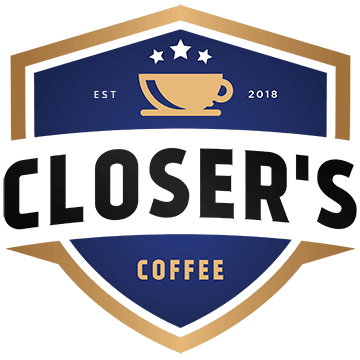There was once a person who wanted to experience indoor skydiving in Dubai. Before going in, the gatekeeper asked them a question to ensure their safety, “Are you pregnant?”
Funny enough, the person going in was a man.
Now, this is an extreme case of following a script without considering who was standing right in front of them.
But, what does this have to do with selling?
In today’s post, I give my two cents on the debate around whether you should use a written sales script during cold calling or not [needless to say, a written script during an in-person interaction is a total no-no though the following discussion could apply to a memorized script].
My personal opinion is that using a sales script will depend on where you are in your sales career.
Experienced salespeople suggest that you use written scripts sparingly as they could make you sound either like a monotonous robot or an overcaffeinated, high-strung one depending on how fast you speak. This could totally ruin your chance to connect with your potential customer.
You might also become so focused on reading from the script that you spare no cognitive energy on actually listening to what your prospect is saying, again missing out on a real connection and introducing you to the phone’s dial tone more often than you would like to hear.
However, I still think sales scripts are a good training tool when an experienced salesperson wants to pass the baton of knowledge to new sales recruits. As a new recruit, you need to build your self-confidence, and scripts can do that by keeping your thoughts organized and coherent. That way, you’re more likely to succeed in your pursuits and less likely to turn into a bumbling mess during the call, which – depending on your level of self-esteem – could turn into self-bashing and consequently impact your self-confidence negatively.
A sales script also helps you stay ahead of the conversation by keeping key details close by in case a customer asks very specific questions about the product. Also, you can address common objections around your offering before the customer brings them up.
Essentially, the main benefit of having a script is preparation. As an inexperienced salesperson, role-playing the script with your team allows you to imagine different scenarios that could unfold and help you be prepared for each and every single one of them.
Sales scripts also give you a safety net on days when your performance is not stellar, which is something that everybody goes through.
Having listed out the merits of using a script, it must be seen as a compass, not a map. In other words, it only exists as a reference and a guide to the conversation, not as a detailed map.
When it comes to interactions between people, the secret behind building rapport is personalization. If that were not the case, selling would be one of the occupations at risk of complete automation.
As it stands right now, according to a study conducted by McKinsey to estimate the percentage of tasks that could be automated by adapting currently demonstrated technology in various occupations, 49 % of day-to-day of sales-related tasks could be automated.
The remaining 51 % is where you bring in the human factor to build trust and make a personal connection. Which is all good, because artificial intelligence and automation can handle tasks such as scheduling and keeping a sales pipeline organized, but can it really make someone laugh or feel like their lives will be turned around by the product or service you’re selling?
With that said, as you gain more experience as a salesperson, you’ll learn to take control of any conversation with a potential customer. We live in a cluttered world, and to rise above the noise, it is imperative you grab their attention and be memorable by eliciting positive feelings through personalization.
Also, because we live in a world where the buyers themselves have changed, salespeople have to be more responsive to that change. In studies on experiences that are designed to be purely digital like e-commerce, results have shown that people still crave human interactions (Link Here).
In conclusion, remember that selling is a human process and though cold calling might have its perks in terms of efficiency, the real foundation of selling is long-term relationship building, which means at some point you have to get off the phone and meet your potential customer in person.
“The big trend for 2018 is conversational selling…Trying to treat them more like a human, really engaging with the prospect on a one-to-one basis, and tailoring the message to who they are and their needs at the time.”
— Marko Savic, CEO and Founder, FunnelCake [Link Here]


